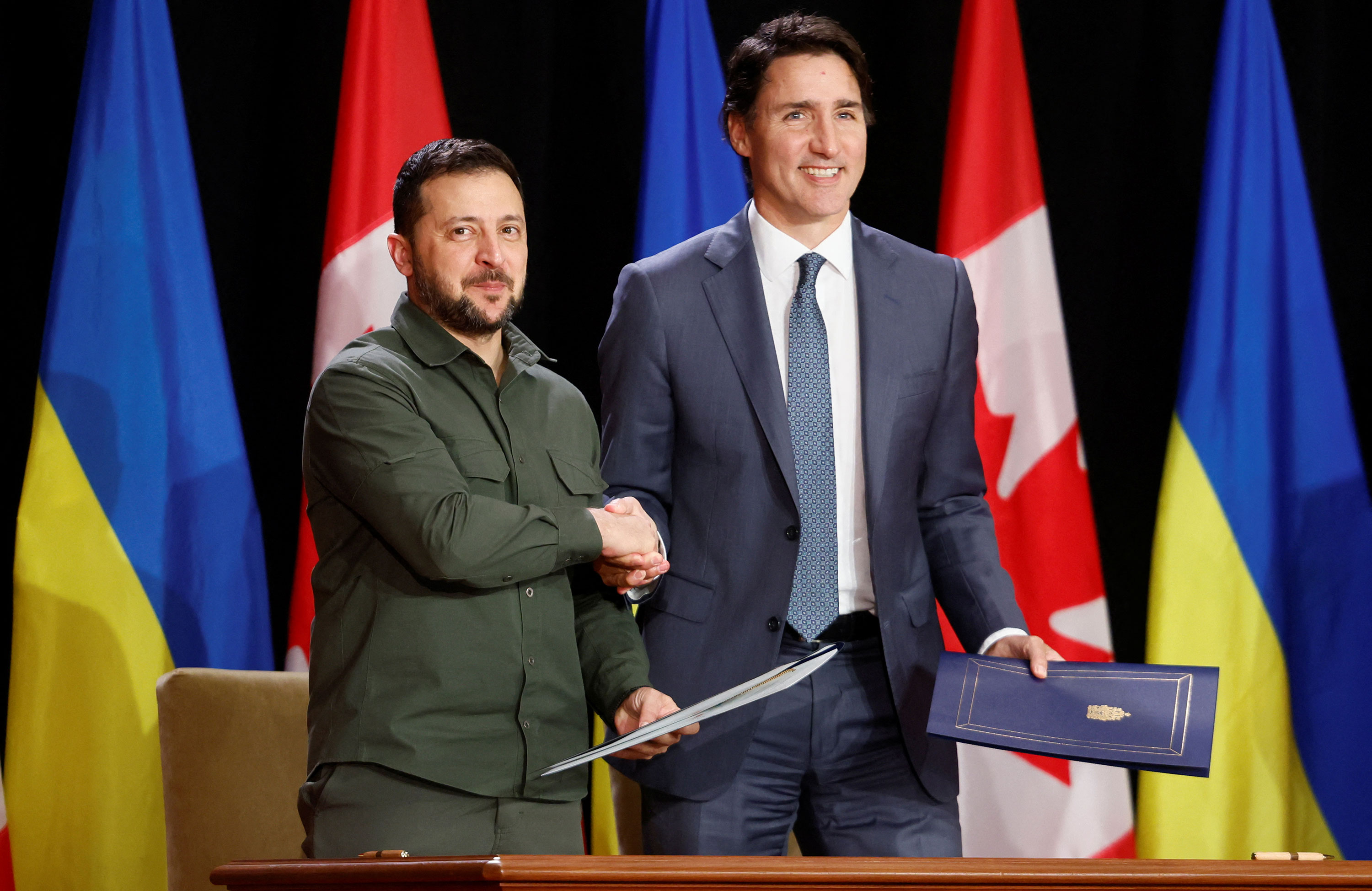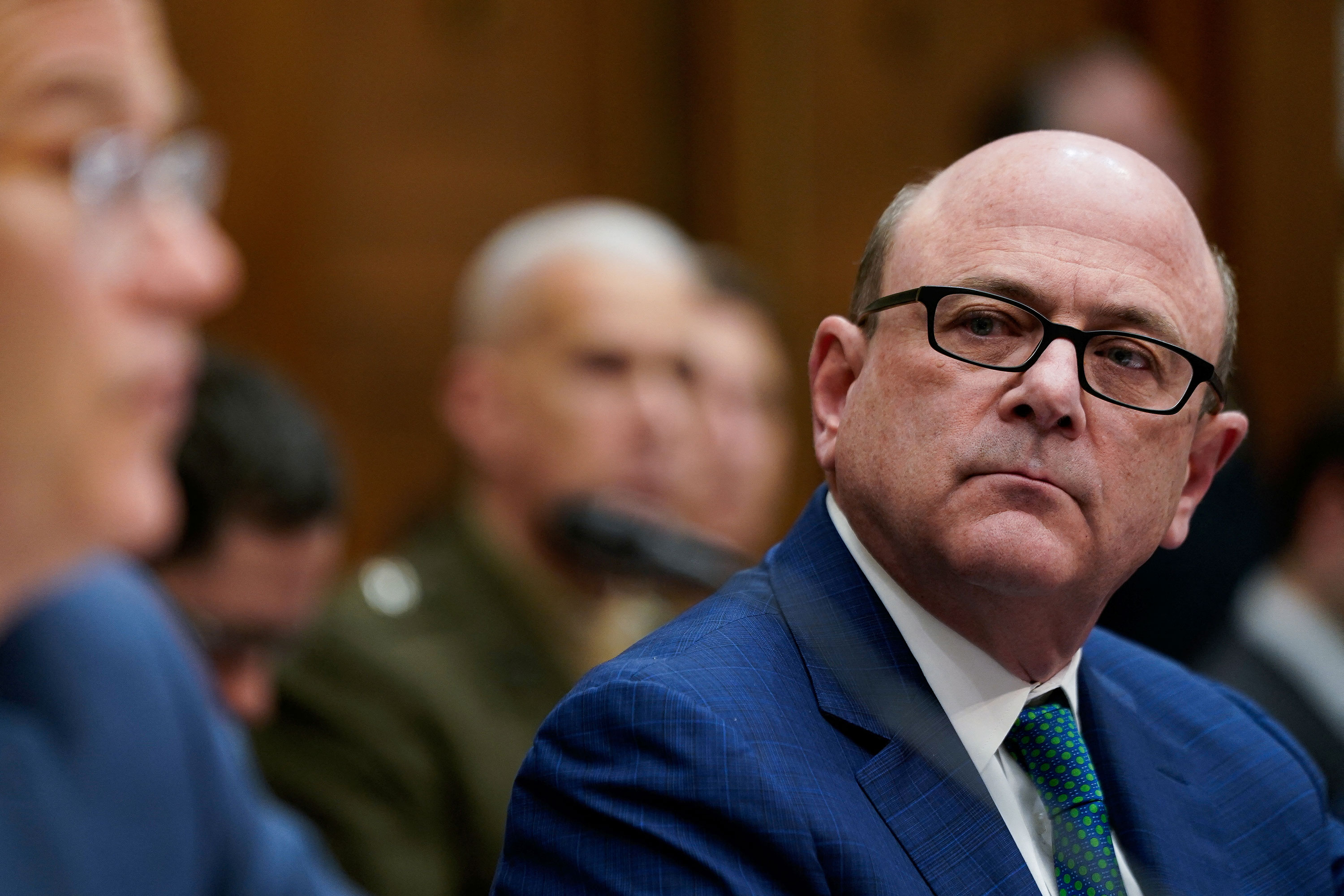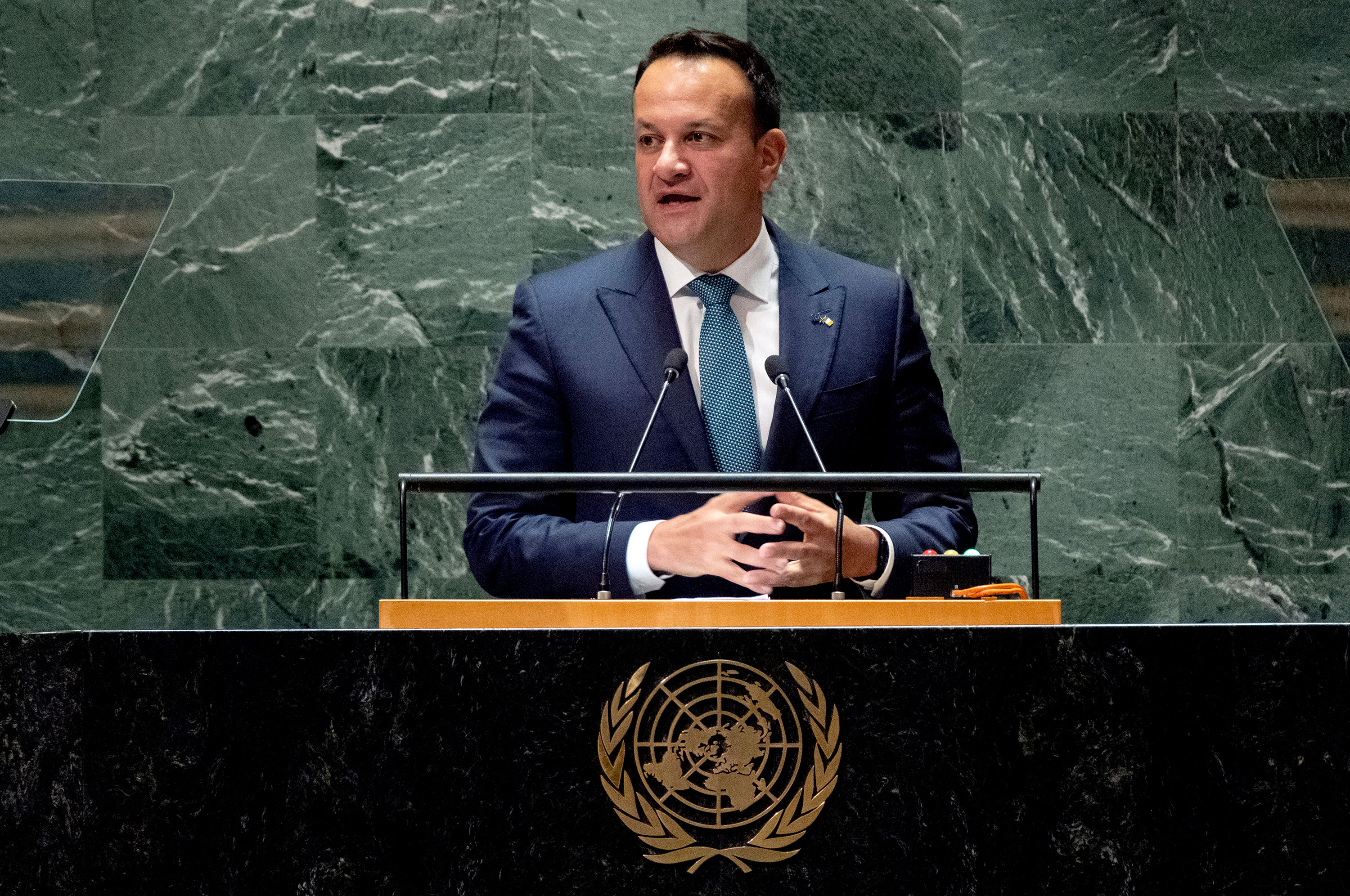Our live coverage for the day has ended. Follow the latest Ukraine news or read through the updates below.
September 22, 2023 - Russia-Ukraine news
By Tara Subramaniam, Lauren Kent, Hannah Strange, Aditi Sangal and Tori B. Powell, CNN
Ukraine signs an updated Free Trade Agreement with Canada, Zelensky says
From CNN's Mariya Knight

Ukrainian President Volodymyr Zelensky called the signing of an updated Free Trade Agreement with Canada on Friday "the basis for the reconstruction of Ukraine" in a post on Telegram.
"Canada is one of our biggest donors, that's very important," Zelensky said.
The document "will facilitate the development of trade in goods and services, investment and the formation of a developed competitive market economy in line with national priorities," among other things, according to the Ukrainian Presidency statement.
Zelensky also said he was very grateful to Canada for "the decision to join F-16 pilot training" of Ukrainian soldiers.
This came after Canadian Prime Minister Justin Trudeau announced Friday that Canada "will direct instructors to train Ukrainian pilots and service personnel on the F-16s."
Zelensky also thanked Trudeau for his government's decision to purchase "a new batch of missiles for air defense systems for the needs of Ukraine."
New sanctions against Russia "cause more harm to Europe than Russia," Hungarian foreign minister says
From CNN's Mariya Knight
New sanctions against Russia are not needed because they "cause more harm to Europe than Russia," Peter Szijjarto, Hungarian foreign minister, said Friday in an interview with Russian state media TASS.
The comments come after his meeting with Russian Foreign Minister Sergei Lavrov on the sidelines of the United Nations General Assembly in New York on Friday.
Szijjarto said supplies of Ukrainian grain to Central European countries will destroy their agricultural sector.
"If Ukrainian grain starts to spread into Central European countries, it will definitely destroy the agricultural markets of Central Europe. Not to mention our farmers, whom we obviously need to protect," Szijjarto said, as cited by TASS.
According to Szijjarto, Hungary is ready to provide free transit of Ukrainian grain through its territory. He also noted that initially, the agreement on lines of solidarity implied permission for the transit of Ukrainian agricultural products only.
"As I understand it, they (Ukraine) would prefer to distribute grain in Central Europe, but the original agreement on lines of solidarity was not about that," he said, according to TASS, adding that the agreement implied "permission for transit, and not for bilateral trade."
Szijjarto said Hungary's energy resources are "largely dependent on supplies from Russia," and Moscow guaranteed the continuation of oil and gas supply to the country at the meeting with Lavrov in New York, according to TASS.
Szijjarto will visit Moscow to participate in Russian Energy Week, he said, which will take place in Moscow between October 11 and 13. He said he will also meet with Russian Deputy Prime Minister Alexander Novak, TASS said.
It's past midnight in Kyiv. Here's what you should know
From CNN staff
The general leading Ukraine's counteroffensive along the southern frontline spoke to CNN's Frederik Pleitgen in an exclusive interview Friday.
Gen. Oleksandr Tarnavsky told Pleitgen that strikes on Crimea, like the one on Friday, are important for the success of Kyiv’s counteroffensive. He also said winter won't slow down Ukraine's counteroffensive, that Kyiv’s biggest breakthrough is still to come and that Wagner fighters continue to pop up “here and there” on the frontlines.
If you’re just now reading in, here are other headlines you should know:
- Crimea attacks: Ukraine launched a missile attack on the headquarters of Russia's Black Sea Fleet located in Sevastopol, the largest city in the Ukrainian peninsula of Crimea, which was illegally annexed by Moscow's forces in 2014. The Strategic Communications Department of the Armed Forces of Ukraine (Stratcom) confirmed Friday that Ukraine successfully targeted the headquarters. Ukrainian officials on Friday applauded the attack. And a Ukrainian military spokesperson said Friday that the situation in the Black Sea remains "tense," adding that Ukraine still has "a long way to go" to "destroy all the enemy's capabilities" in Crimea.
- Russian missile attack: A person has died and at least 31 others were injured, including three children, after a Russian missile struck the central Ukrainian city of Kremenchuk on Friday, according to the head of the Poltava regional military administration.
- Cyberattack claims: Crimean Internet providers have faced an "unprecedented" cyberattack, leading to Internet access issues for residents on the peninsula, a local Russian-appointed official said Friday. Also, Canada warned the cyber community to be in a heightened state of vigilance during Ukrainian President Volodymyr Zelensky’s visit to the country.
- Zelensky in Canada: Zelensky thanked Canada for its support of Ukraine during a meeting with Canadian Prime Minister Justin Trudeau on Friday in Ottawa. He also called Russia's war in Ukraine a genocide during his address to Canada's Parliament.
- UNGA: Speaking at the United Nations General Assembly on Friday, Irish Taoiseach Leo Varadkar called Russia’s threats to use nuclear weapons on Ukraine “outrageous” and warned of a second nuclear arms race.
- Support for Ukraine: The Defense Department Inspector General has been selected as the lead watchdog for aid flowing to Ukraine. Robert Storch will begin the new role on October 18, according to the Council of the Inspectors General on Integrity and Efficiency.
Lead US inspector general selected to monitor Ukraine aid
From CNN's Oren Liebermann

The Defense Department Inspector General has been selected as the lead watchdog for aid flowing to Ukraine.
Robert Storch will begin the new role on October 18, according to the Council of the Inspectors General on Integrity and Efficiency. He will work with the State Department and watchdogs from the US Agency for International Development to monitor approximately $113 billion in aid that has been sent to Ukraine and other countries since the start of the war last year.
Republican Sen. Roger Wicker, the ranking member of the Armed Services Committee, along with several of his colleagues, welcomed the announcement of a lead inspector general.
"Appointing a lead Inspector General will help ensure that Congress supports Ukraine's defense in the most responsible and effective way possible," said Wicker in a statement Friday.
As the Biden administration has continued to send billions of dollars in aid to Ukraine, some members of Congress, particularly Republicans, have called for more oversight to prevent fraud and abuse.
Last week, the Pentagon's inspector general established a new team in Ukraine to better monitor US security assistance to Kyiv. The organization said a senior US representative began work in Ukraine in late-August, and additional personnel are expected to arrive by the end of September.
It marked the first time the Defense inspector general will have personnel based in Ukraine since Russia’s invasion in February 2022, said spokesperson Megan Reed.
Top Ukrainian General says Wagner fighters still pop up “here and there” in Ukraine
From CNN’s Vasco Cotovio, Frederik Pleitgen, Daniel Hodge, Yulia Kesaieva and Kostyantin Gak
Wagner fighters continue to pop up “here and there” on the frontlines in Ukraine, said the general leading the country's counteroffensive along the southern frontline.
“In some directions, I can’t say whether it's the Kherson region, or our direction, or somewhere else they do pop up,” Gen. Oleksandr Tarnavsky said when asked about reports that Wagner fighters had been redeployed to Kherson. “The fact is that their badges appear here and there — that’s been constant.”
Tarnavsky went on to say that his men usually speculated about the presence of Wagner whenever their enemy started behaving more competently.
“We suspect the presence of Wagner if we see the deterrence of our offensive forces with the involvement of a category of military personnel who perform these tasks in a more interesting (more non-standard) way,” he explained. “This makes one think: 'Maybe it's Wagner has showed up?'”
“But there is no such unit in my area of the front today,” he said. “Regarding Kherson direction — I can’t say.”
Irish leader warns of new nuclear arms race following Russia’s threats on Ukraine
From CNN's Karen Smith and Niamh Kennedy

Speaking at the United Nations General Assembly on Friday, Irish Taoiseach Leo Varadkar called Russia’s threats to use nuclear weapons on Ukraine “outrageous” and warned of a second nuclear arms race.
“Among the many horrors of the situation in Ukraine has been the threat and indeed multiple threats to use nuclear weapons. Such threats are in themselves outrageous. Russia knows, as we all do, that their use would result in devastating humanitarian and environmental disaster,” the Irish leader said. Taoiseach is Gaelic for prime minister.
Ireland has been a vocal critic of Russia's invasion of Ukraine, providing more than $224 million (or about 210 million euros) in humanitarian aid to Ukraine since the war broke out.
The country, which is militarily neutral, has “long been committed to building a world free of nuclear threats,” according to Varadkar.
“But we see a world in which their place in security doctrines is growing rather than diminishing. This must be reversed. The stark alternative is a new nuclear arms race that must not pass. The devastation on innocent civilians of the use of explosive weapons in populated areas cannot continue to echo down generations. We must never witness that again,” Varadkar stressed.
Top Ukrainian general says Ukrainian forces have broken through in Verbove
From CNN’s Vasco Cotovio, Frederik Pleitgen, Daniel Hodge, Yulia Kesaieva and Kostyantin Gak
Ukrainian forces have made a breakthrough in Verbove as they continue to advance, said Oleksandr Tarnavsky, the general leading Ukraine’s counteroffensive along the southern frontline.
“On the left flank [near Verbove] we have a breakthrough and we continue to advance further,” Tarnavsky told CNN's Frederik Pleitgen during an exclusive interview Friday.
Tarnavsky conceded they were moving slower than anticipated.
“The main thing is not to lose this initiative (that we have). And, well, not to lose it in practice, with actions,” he said.
One of the reasons for the slow advance, Tarnavsky said, was the fact that Russia had been able to learn some lessons from other Ukrainian offensives.
“The Russians are learning quite fast, as they don’t have any other choice. If they don’t learn, they will be defeated sooner,” he explained. “I wouldn’t say they are adapting to our actions, as we also change our tactics.”
Tarnavsky added that Ukraine had also been adapting to using Western equipment, as well as Western tactics.
“The attention was paid to the basics, to the application of the equipment itself, adjustment and maneuver skills, ability to use the weapon that is available at the certain object,” Tarnavsky said of the training that Ukrainian troops received from US and NATO allies.
“But during combat it’s a totally different story, it's a complex combination of an infantryman and an infantryman on equipment and an infantryman with equipment, in combination with an armored vehicle, more specifically, tanks and even when using artillery.”
Tarnavsky went on to say the war would not truly come to an end, while Russian President Vladimir Putin remained in power.
“For me the end to the war is not just reaching the state border and defeat or eliminating the enemy, who is on our land. The end of war for me is when the Russians of the territory of Russia realize that they have made, and continue making a mistake of supporting their state’s leadership,” he explained. “[The war] may end with success for us but for the whole society there will still be a threat.”
1 person dead and 31 injured in Russian missile strike on Ukrainian city of Kremenchuk
From CNN's Mariya Knight and Yulia Kesaieva
A person has died and at least 31 others were injured, including three children, after a Russian missile struck the central Ukrainian city of Kremenchuk on Friday, according to the head of the Poltava regional military administration.
According to Dmytro Lunin, the search and rescue operations have been completed, and "a specialized commission will work in the city to inspect the facilities and record all the damage" on Saturday.
The attack also damaged surrounding buildings, he said.



